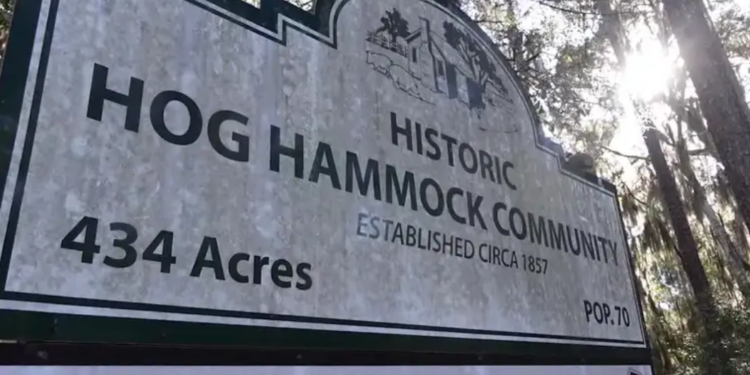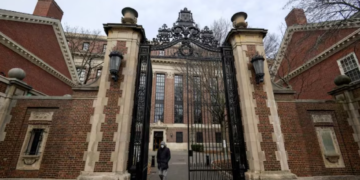Nov 8, 2024 Story by: Editor
SAPELO ISLAND, Georgia – A judge has temporarily blocked a Georgia county from approving larger home builds in a small island community inhabited by descendants of Black slaves. This decision will stand until the state’s highest court rules on whether residents have the right to challenge zoning changes through a referendum, fearing the changes could lead to unsustainable tax hikes.
Hogg Hummock on Sapelo Island was established by former slaves who had labored on Thomas Spalding’s cotton plantation after the Civil War. The residents are part of one of the South’s last remaining Gullah-Geechee communities, a culture with strong African roots developed through generations of isolation from the mainland.
Over the past year, the island’s few dozen Black residents have been at odds with McIntosh County officials over a new zoning ordinance. In September 2023, commissioners voted to double the allowable size of homes in Hogg Hummock, rolling back protections established nearly three decades ago to preserve the community’s modest homes and dirt roads.
In response, residents and supporters initiated efforts to overturn the zoning changes by invoking a lesser-used provision in Georgia’s constitution allowing citizens to hold special elections to challenge local laws. After gathering more than 1,800 signatures, a referendum was scheduled for October 1.
However, McIntosh County commissioners filed a lawsuit to prevent the vote. Senior Judge Gary McCorvey halted the referendum just days before the election, siding with the county’s position that zoning ordinances are not subject to voter approval.
Now, Hogg Hummock residents are appealing to the Georgia Supreme Court, seeking to revive the referendum and delay the ordinance’s effects.
On Monday, McCorvey granted a request to prevent the county from issuing new building permits or approvals under the amended zoning ordinance until the Supreme Court rules.
The updated zoning law permits homes up to 3,000 square feet (278 square meters) of total development, more than doubling the previous limit of 1,400 square feet (130 square meters) for heated, air-conditioned spaces. Residents argue that introducing larger homes to their community will increase property taxes, pressuring them to sell ancestral lands.
McCorvey, in his Monday ruling, noted that the residents could have a “chance of success” on appeal, suggesting that approving larger homes before a court decision could lead to “irreparable harm.”
“A victory in the Supreme Court would indeed be hollow, like closing a barn door after all the horses had escaped,” McCorvey wrote.
McIntosh County attorneys argued that it was improper to block an ordinance passed more than a year ago. Under McCorvey’s order, new building permits must comply with the prior, stricter size limitations.
Less than a month after the referendum was halted, Sapelo Island faced an unrelated tragedy. On October 19, while hundreds of visitors were on the island, a walkway collapsed at the state-run ferry pier, killing seven people. The incident occurred during Hogg Hummock’s annual Cultural Day, intended as a joyful occasion amidst the community’s ongoing uncertainties.
The Georgia Supreme Court has yet to schedule a hearing for the Sapelo Island case. Last year, the court upheld a 2022 citizen referendum that prevented coastal Camden County from constructing a commercial spaceport.
The spaceport referendum was based on a provision in Georgia’s constitution allowing a special election to challenge “local laws, ordinances, resolutions, or regulations” if supported by 10-25% of district voters. However, in the Sapelo Island case, Judge McCorvey ruled that zoning ordinances fall under a separate constitutional provision, making them ineligible for voter challenge through a special election. Source: Jean Luc Gleuze

















